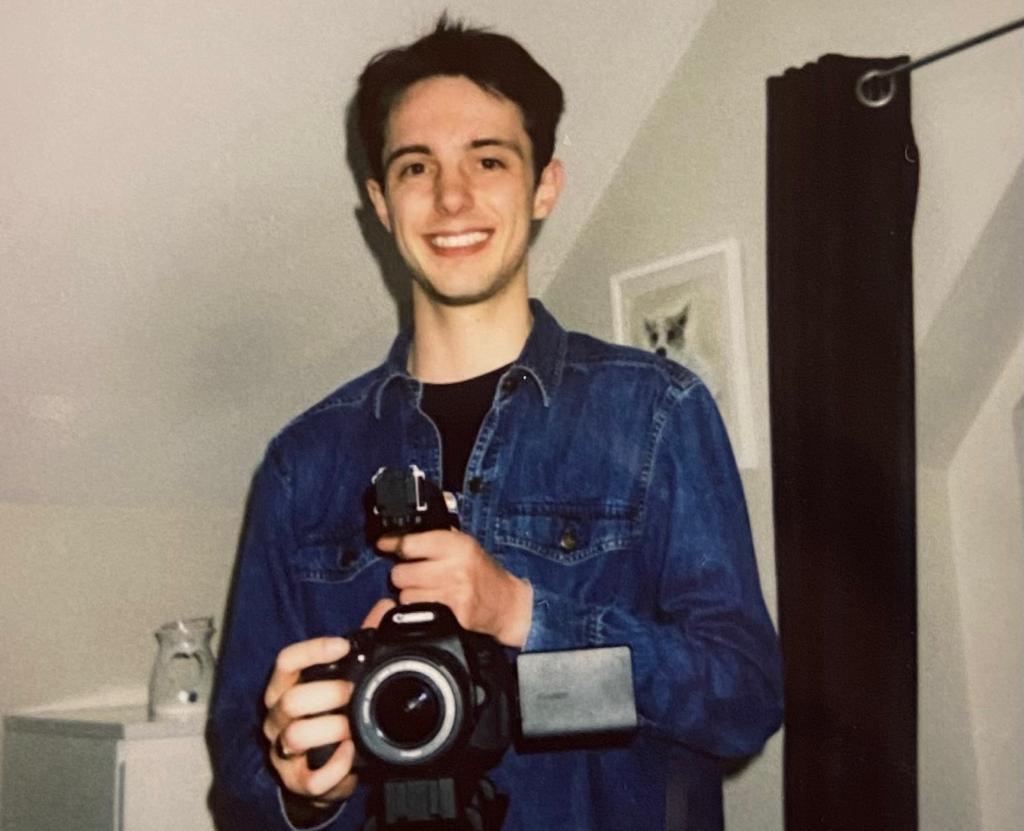Robert Smith
Robert Smith is a 27 year old Director and Screenwriter based in Hampshire, UK.
From a young age, Robert has always been writing stories, inspired by an extensive collection of films that he grew up with, finding role models in many auteurs such as Martin Scorsese, Francis Ford Coppola, Stanley Kubrick, and Woody Allen.
At sixteen, Robert decided to start exploring filmmaking as a medium to tell these stories and has continued to do so to this day. Using his knowledge of screenwriting and directing, Robert has produced a number of short films, including Lay Claim, a short crime drama which served as his final assessment piece before graduating from Solent University where he studied Film Production.
Having worked a number of roles for production companies and television studios including ITV, Robert continues to operate as an independent filmmaker, adapting his screenplays into a range of short films of varying genres with the assistance of dedicated cast and crew members.
Your project has entered our festival. What is your project about?
Two outcasts, Andrew and Matt, stand on the edge of adulthood, both unsure of what the future may hold for them. Wanting to make the most of their last summer of freedom, they decide to spend the day together skateboarding, reminiscing about old times, talking about girls, and kidding around with each other. However, Matt can sense that Andrew is using their day out as a distraction from something close to home.
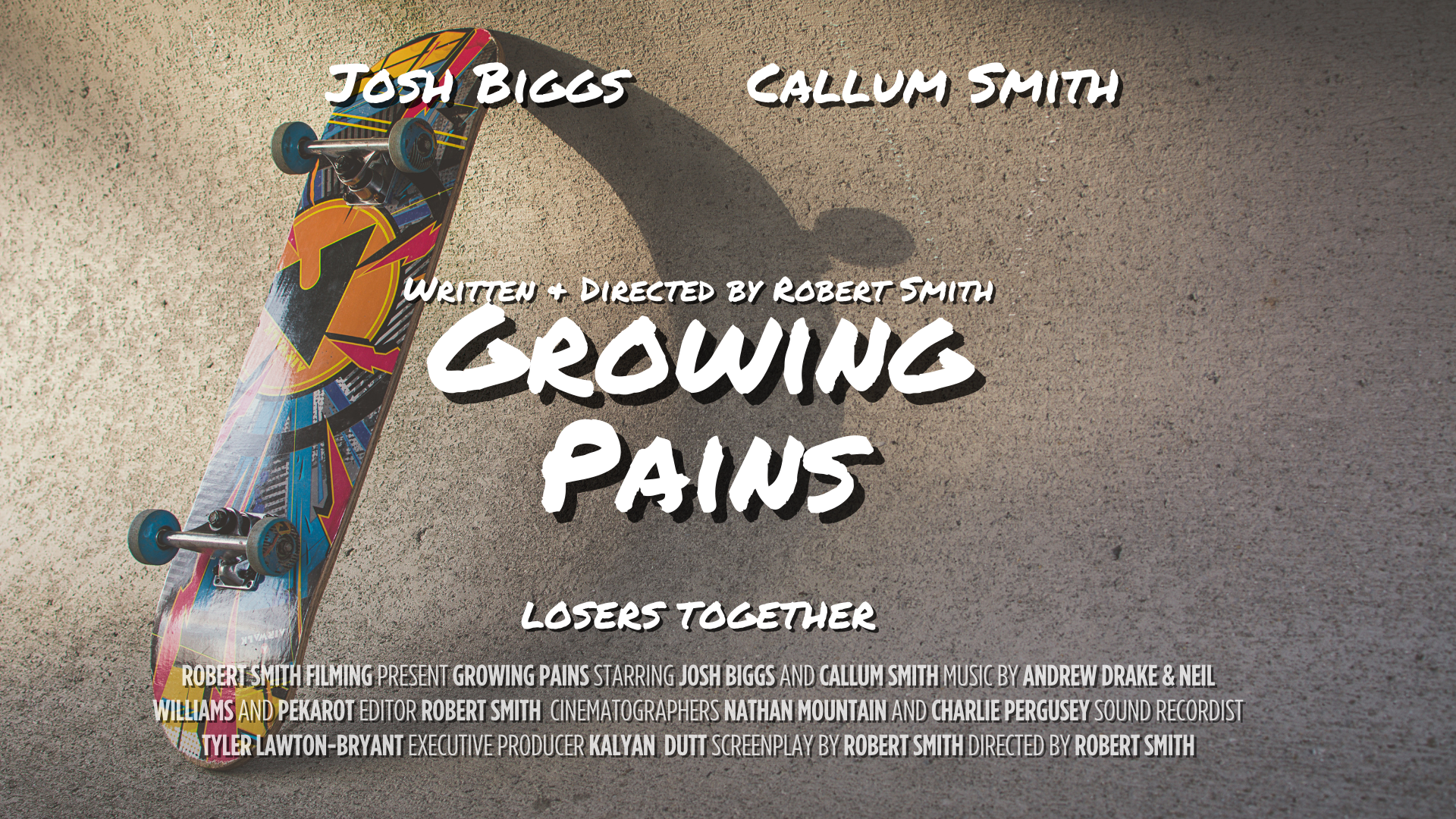
What are your ambitions with your project?
My hope for this project was to create something that resonates with people of all ages and backgrounds, as the film deals with universal issues of familial tensions, uncertainty about the future, and most importantly, having the support of people close by. Now that the film has been made, I want to get it seen by as many people as possible.
Tell us something about your shooting? What pleasantly surprised you?
Despite having met only a few minutes before shooting their first scene together, Josh Biggs and Callum Smith played their respective roles with so much genuine chemistry and conviction. It felt as if Andrew and Matt had jumped off of the page and we were watching their day play out as it does in the script. I found both of them to be a pleasure to direct and hope to work with them again in the near future.
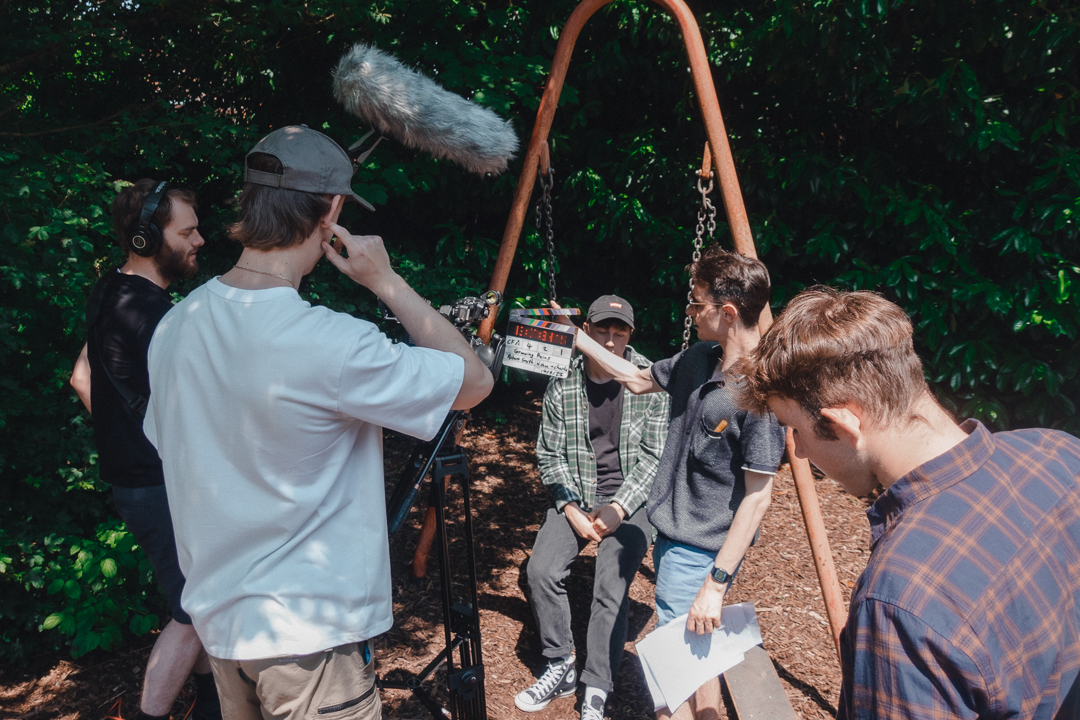
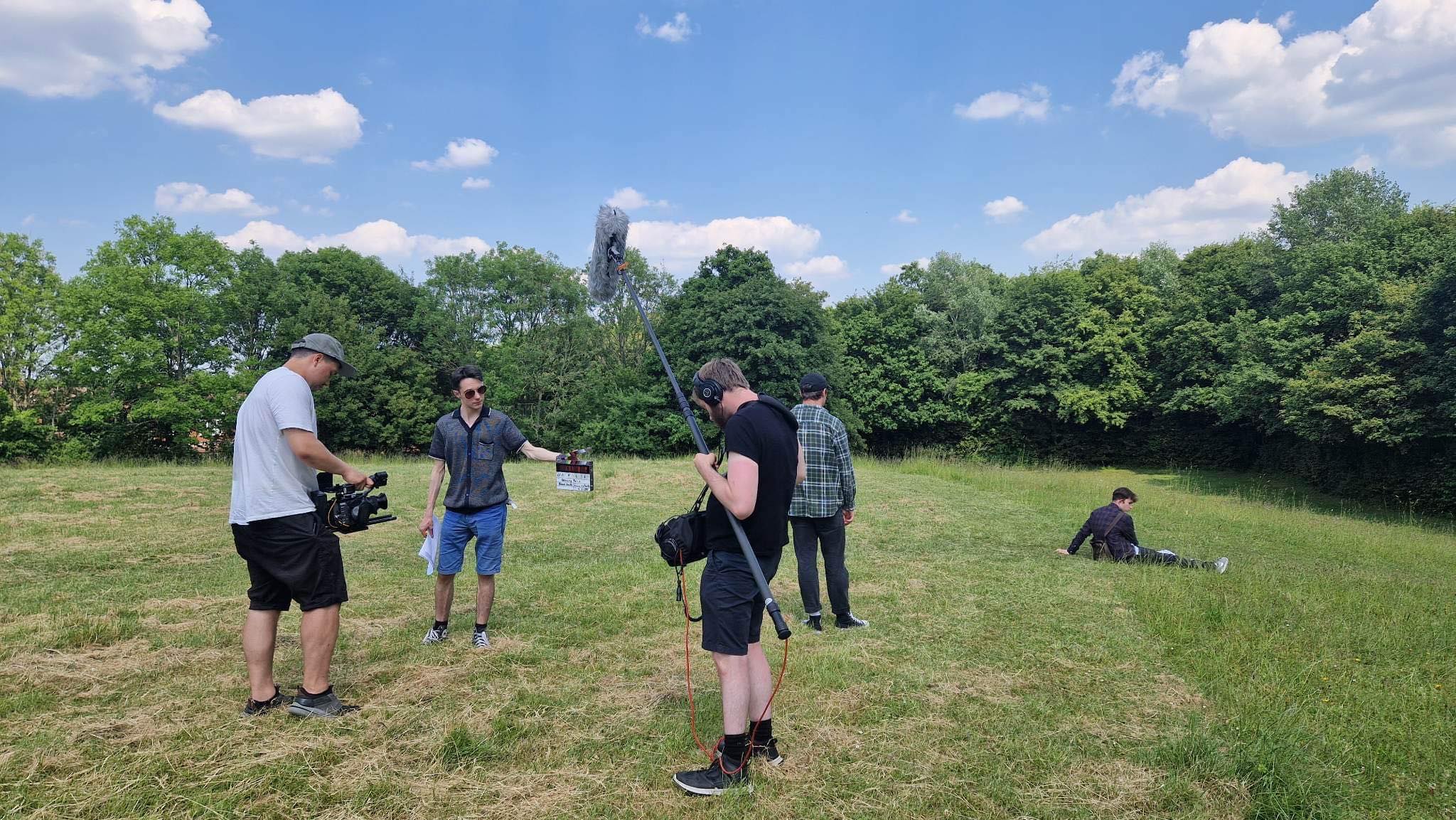
For what group of spectators is your film targeted?
Predominantly, the target audience would be 18-25 year olds, due to the age of the characters and the coming-of-age nature of the narrative. That being said, the themes and subjects of this film should resonate with audiences of all ages.
Why should distributors buy your film?
Whilst I never imagined that Growing Pains could be bought by distributors, I feel that this is an important film about vulnerability from a masculine perspective and deals with the topic of talking about personal issues with close and trusted friends. It is a poignant message which would be advantageous for a lot of people to hear.
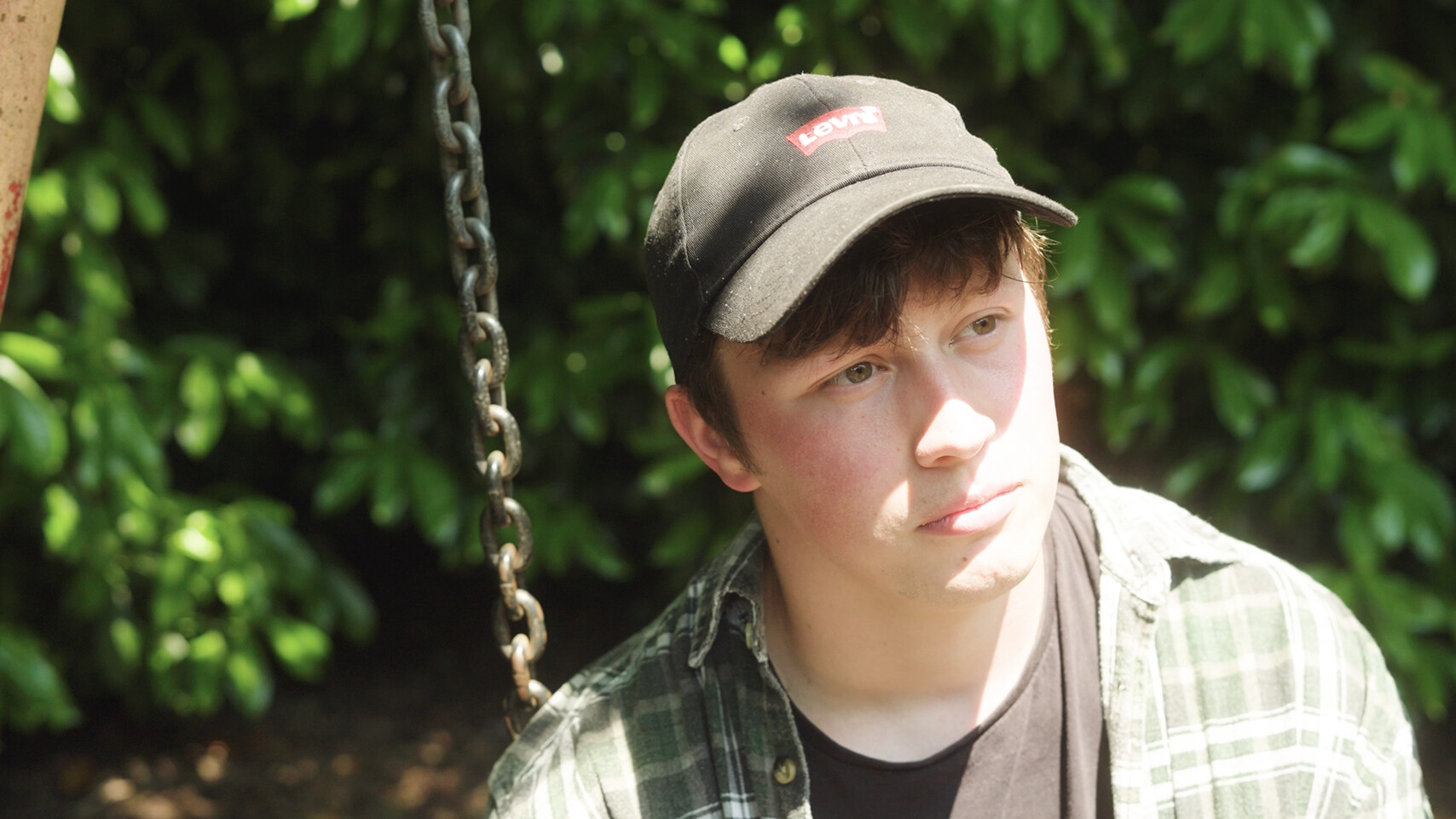
How would you specify your work? What characterizes your film?
This is an intimate, coming-of-age film. Utilising a small cast allows us to focus solely on these two characters with a great emphasis on their personal situations and their close relationship. We shot this film in a very limited number of locations to provide a sense of emptiness around these characters; a visual metaphor to show how little there is for these boys to do in their hometown and their lack of opportunities within their immediate environment, a relatable theme to many young people living in small, suburban areas.
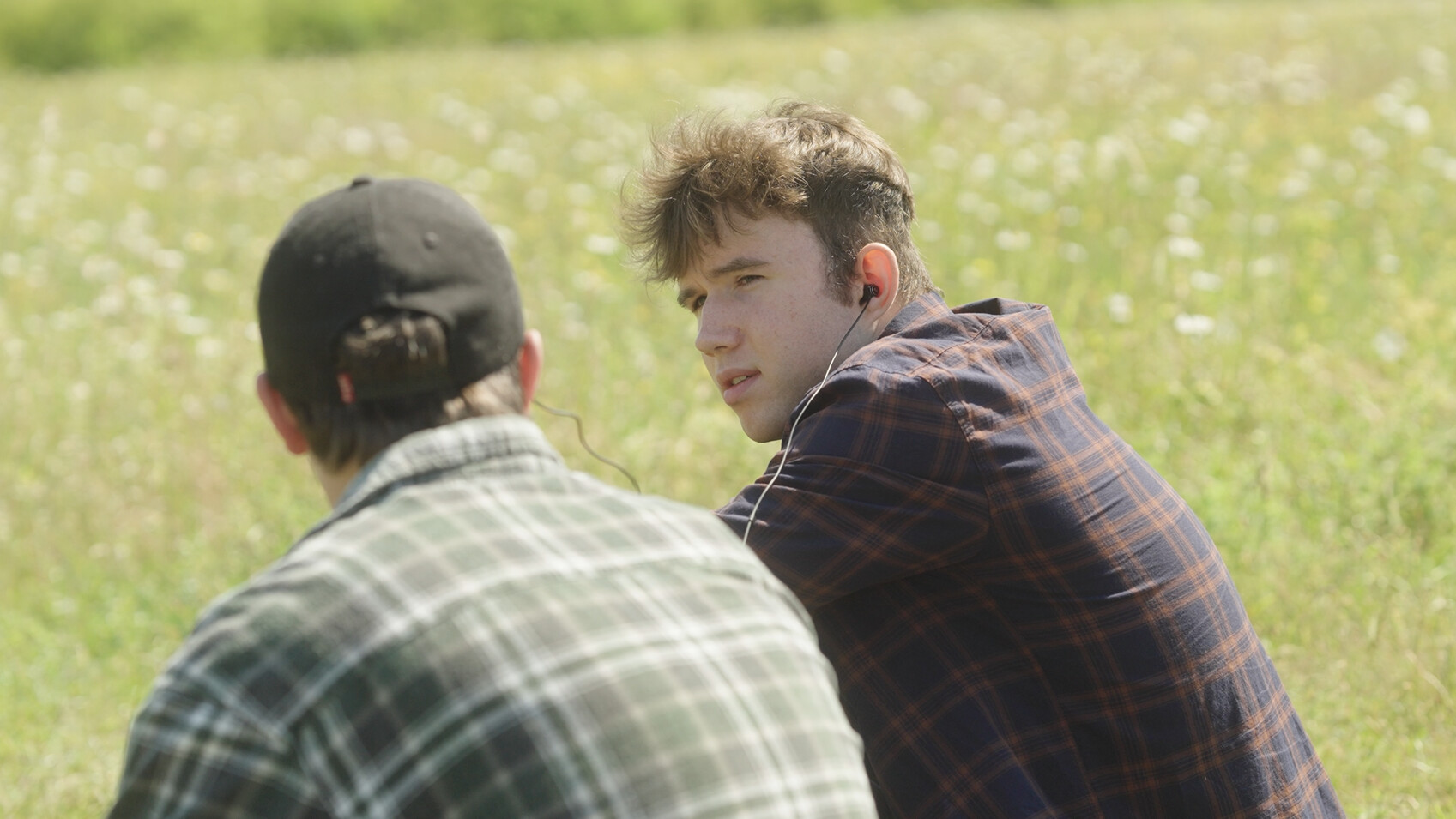
Why did you decide to become a filmmaker?
To tell stories in a visual medium that I am capable of producing. I'm no expert at painting or drawing, so to tell these tales in a way that would entertain and capture my audience's imagination and attention, I turned to film; one of my greatest passions. I adore writing screenplays and directing my actors throughout these projects. Whenever I watch an idea that I came up with in the emptiness of my bedroom come to life on screen, there is a sort of magic that can't be compared to anything else.
Who is your role model?
Jim Cummings (who I regard as the Patron Saint of Independent Filmmaking) showed us that we don't need to rely on big studios to create films, whether short or feature-length. His work on Thunder Road inspired me to go out and make my own films, whether they'd have commercial value or not, because the creative fulfilment of this art form is what matters more.
Which movies are your favourites? Why?
I'm a big fan of the obvious choices like Goodfellas (Martin Scorsese) and The Godfather (Francis Ford Coppola), because they are true masterclasses in filmmaking. However, I also enjoy a lot of modern character-driven stories like The Devil All the Time (Antonio Campos), Whiplash (Damien Chazelle), and Belfast (Kenneth Branagh).
Where do you look for inspiration for your films?
Sometimes I'll watch a film and TV show and become obsessed with a theme or character arc, and think 'I want to make something like that'. From there it's my job to take that inspiration and put a unique twist on it. Other times I get inspired by something that has happened to me or someone I know. If I feel there's potential for a film there, I'll run with it.
Which topics interest you the most?
I'm incredibly interested in the subjects of psychology and the human condition, which I feel is reflected in this film. In addition to these topics, I'm a massive fan of storytelling and music, especially in how different soundtracks can uniquely affect a scene when accompanied by visuals.
What do you consider your greatest achievement in your career?
Any film that I can proudly write and direct is seen as a great achievement to me, so most recently it would be this film; Growing Pains.
What do you consider most important about filming?
Being able to create a story that impacts your audience and leaves a lasting impression on them long after the credits have finished rolling. I also feel that it's incredibly important to trust your cast and crew to deliver on their talents and skill sets because all of us are coming together as a team to work towards a shared outcome.
Which film technique of shooting do you consider the best?
This is a difficult question to answer as each film is unique and may require different techniques. However, generally speaking, I really like using over-the-shoulder shots for conversational scenes between two characters. The proximity of the camera to the subject(s) really helps to create an intimate feeling; as if the viewer is a third person privy to these conversations.
How would you rate/What is your opinion about current filmmaking?
Whilst there have been some standout films in the last ten years, the current state of Hollywood filmmaking feels lacklustre when compared to the cinema that many of us grew up with.
Whilst algorithmic writing and sequels/prequels may be profitable to the studios, they fail to take risks and tell original stories, which I feel many audience members yearn for. This, I feel, is why the emergence of independent filmmakers has grown so much recently, as we're able to create more original narratives without feeling the need to match or surpass box office numbers.
What can disappoint you in a movie?
A bad script and bad performances can ruin the experience of a film. Clunky dialogue, whether written or delivered, can take an audience out of the immersion of a film.
Who supports you in your film career?
I've found support from a small group of local filmmakers, particularly the ones who worked with me on this film; Nathan Mountain (Director of Photography/ Cinematographer), Charlie Pergusey (Cinematographer), and Tyler Lawton-Bryant (Sound Recordist). I have also been supported by my friends and family, including my girlfriend who has been a source of morale throughout the entire process.
What are the reactions to your film?
So far, Growing Pains has received positive reviews, the script being cited as 'heartfelt', whilst the actor's performances and cinematography have also been highly praised.
Have you already visited any of the prestigious film festivals?
I haven't yet, but I hope to attend a number of them someday.
What are your future plans in your filmmaking career?
I have a number of short film projects waiting to go into production, so I will be focusing on getting at least one of those completed in the upcoming year.
I would love for my work to be showcased in film festivals and given the chance to be viewed by a wider audience.
